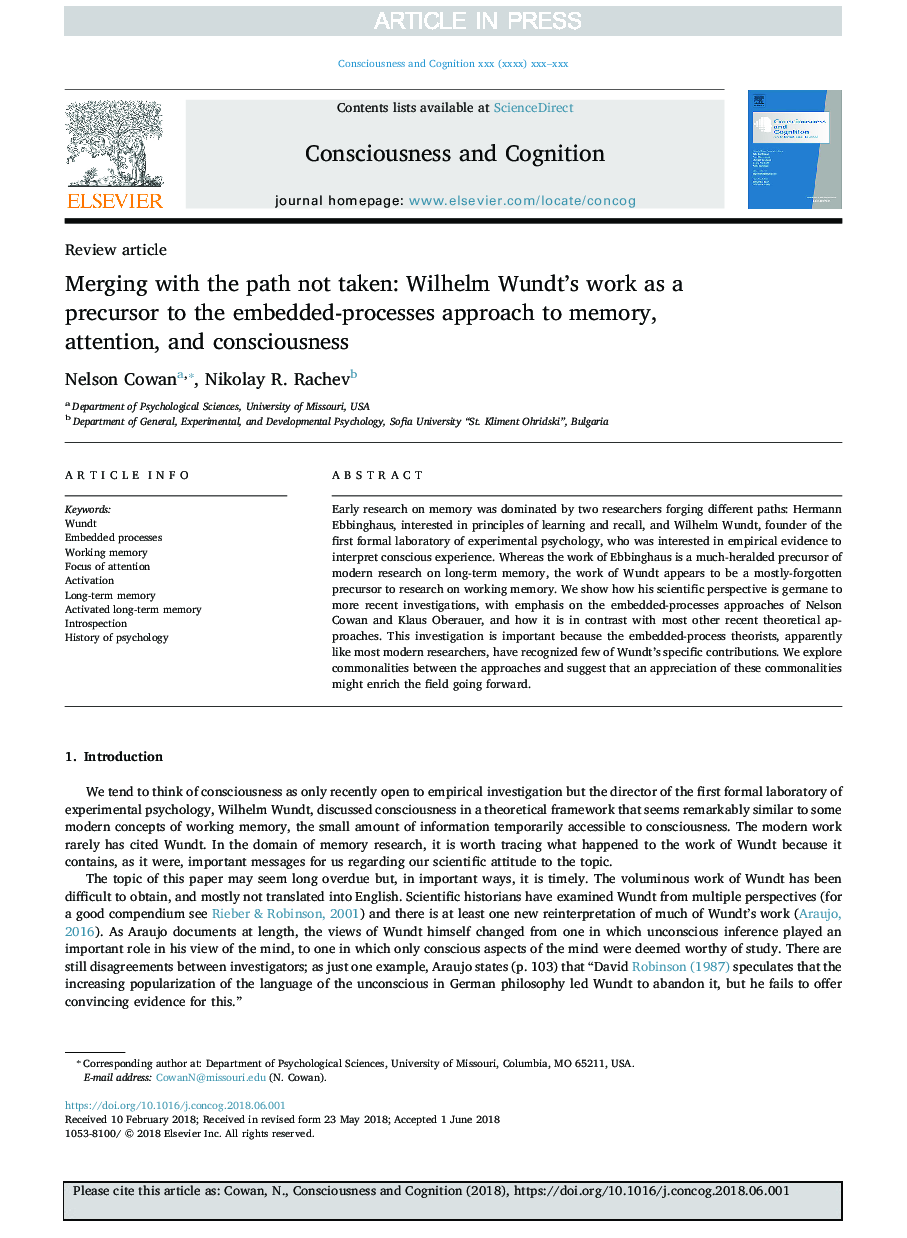| Article ID | Journal | Published Year | Pages | File Type |
|---|---|---|---|---|
| 7287839 | Consciousness and Cognition | 2018 | 11 Pages |
Abstract
Early research on memory was dominated by two researchers forging different paths: Hermann Ebbinghaus, interested in principles of learning and recall, and Wilhelm Wundt, founder of the first formal laboratory of experimental psychology, who was interested in empirical evidence to interpret conscious experience. Whereas the work of Ebbinghaus is a much-heralded precursor of modern research on long-term memory, the work of Wundt appears to be a mostly-forgotten precursor to research on working memory. We show how his scientific perspective is germane to more recent investigations, with emphasis on the embedded-processes approaches of Nelson Cowan and Klaus Oberauer, and how it is in contrast with most other recent theoretical approaches. This investigation is important because the embedded-process theorists, apparently like most modern researchers, have recognized few of Wundt's specific contributions. We explore commonalities between the approaches and suggest that an appreciation of these commonalities might enrich the field going forward.
Keywords
Related Topics
Life Sciences
Neuroscience
Cognitive Neuroscience
Authors
Nelson Cowan, Nikolay R. Rachev,
